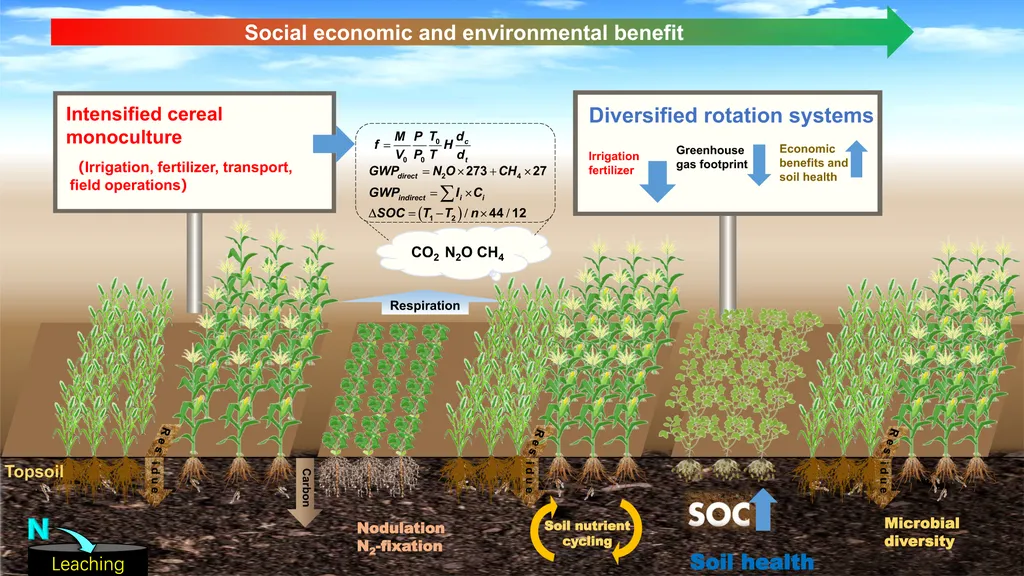In the vast black soil region of Northeast China, a groundbreaking study led by Liqiang Zhang from the College of Plant Science at Jilin University has shed new light on the benefits of crop rotation for soil health and maize yield. The research, published in the *Journal of Agriculture and Food Research* (translated as *Journal of Agricultural and Food Research*), challenges conventional farming practices and offers a promising path toward sustainable agriculture.
For years, farmers in this region have employed various planting patterns, including continuous monocropping, intercropping, and crop rotation. However, the optimal strategy for enhancing both soil biological properties and crop yield has remained elusive—until now. Zhang and his team conducted a field experiment over five consecutive years, comparing three maize cropping systems: continuous maize cropping, maize–soybean rotation, and continuous maize–soybean intercropping.
The results were striking. The maize yield under the rotation treatment was 12.37% higher than under intercropping and 8.38% higher than under continuous cropping. “Crop rotation not only boosts yield but also stabilizes soil pH and enhances nutrient content, particularly total nitrogen,” Zhang explained. “This is a game-changer for farmers looking to maximize productivity while maintaining soil health.”
The study revealed that crop rotation significantly improved rhizosphere soil biological properties. Soil enzymes like catalase, urease, and acid phosphatase saw activity increases ranging from 2.83% to 12.88%. Moreover, bacterial community richness and diversity in the rhizosphere soil increased by 12.79% to 16.93%. Bradyrhizobium, a key nitrogen-fixing bacterium, thrived under rotation, contributing to higher soil nitrogen levels and maize yields. In contrast, the enrichment of Nocardioides and Pseudarthrobacter was linked to reduced yields, highlighting the importance of microbial balance in soil health.
These findings have profound implications for the agricultural sector, particularly in regions reliant on intensive crop cultivation. By adopting crop rotation, farmers can enhance soil fertility, improve yields, and contribute to long-term sustainability. “This research provides a strong theoretical foundation for optimizing crop management practices in Northeast China and beyond,” Zhang noted.
The study also underscores the need for further research into microbial communities and their role in soil health. As the agricultural industry faces increasing pressure to adopt sustainable practices, understanding the intricate relationships between crops, soil, and microorganisms will be crucial. This research could pave the way for innovative farming techniques that balance productivity with environmental stewardship.
For the energy sector, the implications are equally significant. Sustainable agriculture reduces the environmental footprint of food production, which in turn supports broader efforts to mitigate climate change. As the world transitions toward renewable energy and sustainable practices, research like Zhang’s offers a roadmap for integrating ecological principles into modern farming.
In conclusion, Zhang’s research not only advances our understanding of soil health and crop rotation but also provides actionable insights for farmers and policymakers. By embracing these findings, the agricultural sector can move toward a more sustainable and productive future, ensuring food security for generations to come.

